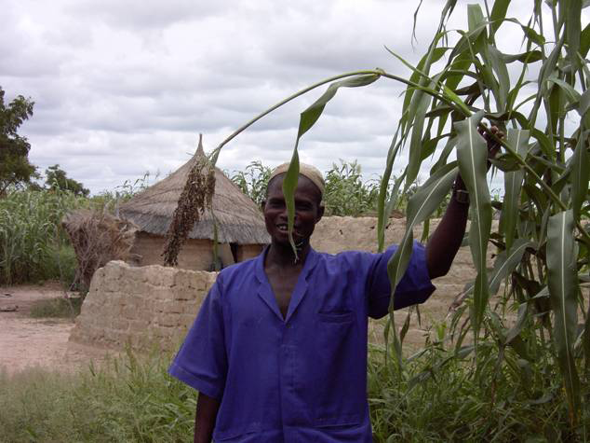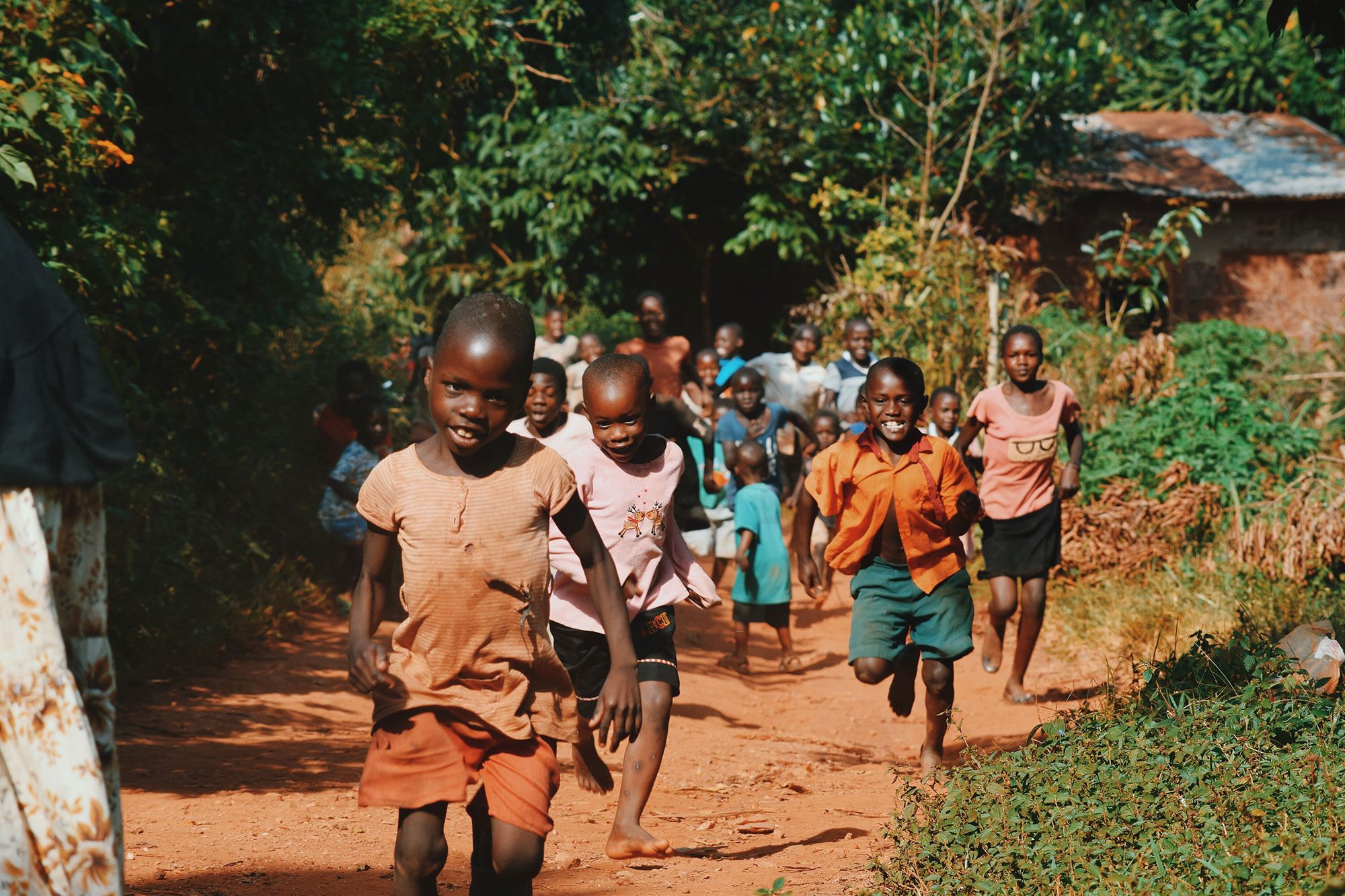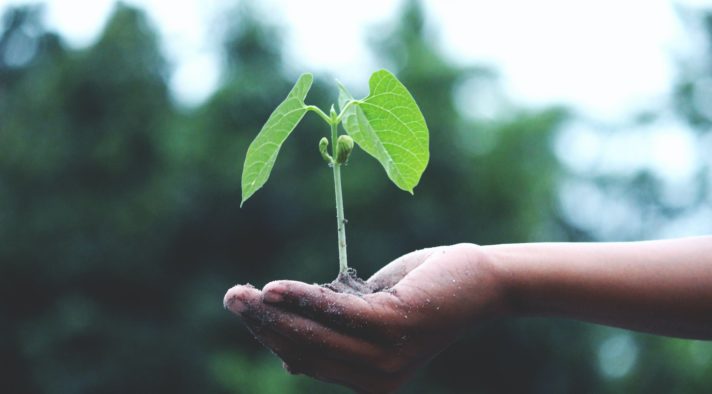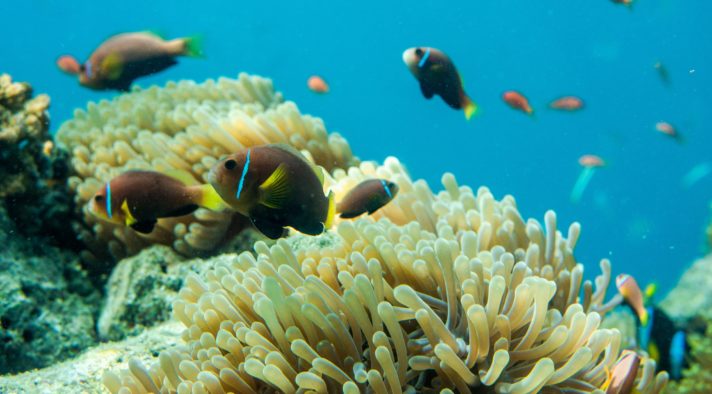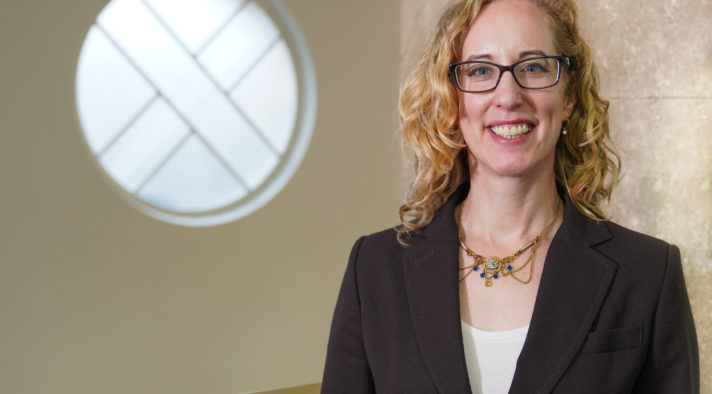Interview with Mr. Constant Y. ZANGO, President of Alliance Technique d’Assistance au Développement (ATAD) on behalf of the Centre Nord Regional Council, Burkina Faso
Regions4: The Centre Nord participated in the COP24 parallel event of the Marrakech Partnership, “Integrated climate action for low-carbon and resilient societies“, in order to provide essential information to strengthen the ambition of the National Determined Contributions (NDC), and achieve territorial sustainable development with joint benefits for climate action and the SDGs. What is the Centre Nord doing to integrate climate action into the 2030 Agenda?
Centre Nord: In order to answer this question, it is important to first take into account the location of Centre Nord and its resources. It is located in a zone strongly linked to disaster events due to climate change. In addition, our population lives essentially on livestock farming. Therefore, these areas are often struck by rains. To address this problem, authorities take action. A consultation among actors is carried out where they all intervene in the elaboration of a common action plan. This action plan is then shared with other different actors, and afterwards, it is submitted to call for financial contributions of different actors for implementing micro-projects in favour of sustainable agriculture, despite the climate conditions and their impact on the population.
There are also political actions which are undertaken for different plans which are elaborated at the regional council level and communities’ level (which are dependent on the regional council), thinking that the regional councils address common groups. These plans take into account actions related to times of crisis, from disasters to climate adaptation in general.
Therefore, this also leads us to think in the population and, most notably, in the production of our region, in its quality, tools and equipment needed to cope with adapting to the present climatic context.
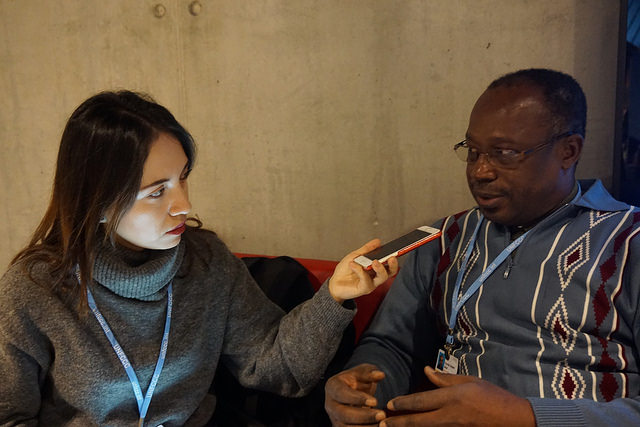
Regions4: Last December during the COP24, Regions4 published the RegionsAdapt 2018 report, entitled “Multi-level governance in climate adaptation”, disclosing the adaptation actions of 38 regional governments. Why is it important to strengthen multi-level governance to achieve adaptation to climate change and what are the Centre Nord’s efforts in this regard?
CN: It is important because the Regional Council and the communities are interlinked in their actions. It is important also because it encourages dialogue among civil society, the government and the people who benefit from these actions. This dialogue also allows us to be more solidary and take care of each other. We also make a call for high-level authorities to meet us and be clear in exposing the situation and how we can adapt.
Centre Nord raises awareness in our communities regarding climate change, in order to adapt and so that the populations that live there feel empowered by the importance of their concrete practices and ancestral production practices.
In this sense of awareness, we work with the involved actors in communities who analyse the interventions, capacities and vulnerabilities of the areas. They respond to questions such as: what are the interventions that should take place? Who should be involved in them, and how can catastrophes affect them?
In this sense, evaluations of capacities and vulnerabilities are applied systematically in the communities and also, communities on this basis analyse them in order to understand their vulnerabilities and the risks of climate change, and then the plans are drawn up.
The plans are elaborated taking into account the people and technical resources available in worst case scenarios, such as the case where a catastrophe presents itself. With this, we measure the depth of the situation and the governance level available to work in finding financing aiming to support vulnerable communities.
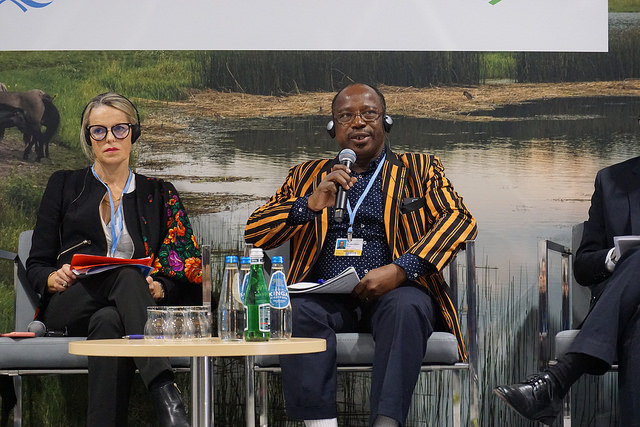
Regions4: Extreme rainfalls and heatwaves are the most reported impacts of climate change on the 2018 RegionsAdapt report. What kind of risks is Centre Nord experiencing and what actions/tools are being used to address them?
CN: At this level, there are many risks that we face and I am always emphatic on the risks, because that’s the reality we live. We do not have climate projections, but we still live catastrophes. Therefore, if you take Centre Nord’s level, the weather forecast in the year 2000 shows that the average temperature had increased 1 degree. We have witnessed continuous degradation of natural resources (soil, water, plants); decreases in plant and animal production; irregular and poor distribution of rainfall; continuing deterioration of the living conditions of communities (hunger, malnutrition, diseases, economic decline); migration of populations to more fertile areas; conflicts related to access to land / natural resources; strong declines in average annual rainfall (3.4% in 2025 and 7.3% by 2050); and drastic decreases in the volumes of river water.
In order to fight this, we implement the valorisation of our own technology and techniques that are traditional in our territory. We promote varieties of agricultural products adapted to high temperatures, resistant to short cycle droughts such as: Cordons pierreux, demi-lune and ZAI
In addition, we support the production of organic fertilizers in sufficient quantity to improve: the structure of soil, soil fertility and the water retention capacity of soil. This practice ensures a certain level of stability of agricultural yields, regardless of the rainfall of the year.
Furthermore, we aim to reduce the impact of drought on crops by applying water-saving techniques. It is not easy, but we make our effort and search for collaborations on different levels and with different partners.
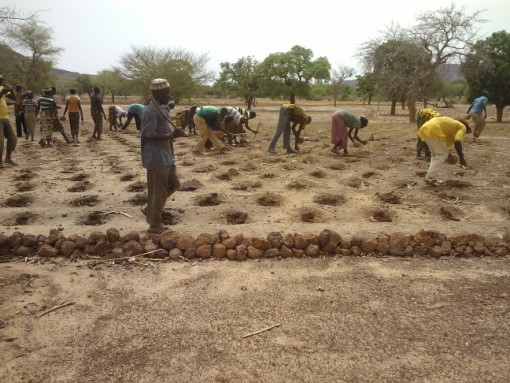
Regions4: The Talanoa Dialogue is a way for non-state actors to share their efforts and contributions to the successful implementation of the Paris Agreement. How is Centre Nord collaborating in this process? Is there a coordination process with the national government to provide input for its National Determined Contributions (NDC)?
CN: At a national level, there are networks of civil society that work on subjects related to climate change and risks of catastrophes. These networks are sufficiently strong and they contribute to consultation with all actors at this level and that work in this field. Me, as a representant of an Association, we are the focal point and responsible for the Permanent Secretariat of NGOs at Burkina Faso’s level, in the Centre Nord. Therefore, as the Permanent Secretariat of NGOs, we bring the dialogue among the various NGOs in the Centre Nord to assess how to move forward.
In 2015, when there were 14 candidates to the Presidency of the Republique, we wrote and submitted a passage that, after the election, was considered by the current President and we agreed to a meeting, we held the meeting and seized the moment for reinforcing his commitment.

Regions4: You participated at the COP 24 in Katowice. What do you believe is the importance of regional governments in participating at international conferences like this?
CN: We are here thanks to Regions4. I have listened to the debate, it’s decent. Parties are acknowledging that regional governments, such as Centre Nord, are aggressively suffering the consequences of climate change.
When we talk about aid, development, forms to help other countries, I think we are the most concerned. Our region, in particular, we are very concerned with this challenge and are waiting for concrete action and additional resources. After the Paris Agreement, we hold our hopes on that, and that is why we are here.
I left my small city to be here, and some people asked me what I was going to do here and I told them that it is a conference on climate change. They asked me if I wanted to change the climate and I said, no, I cannot change the climate. However, with hindsight in Centre Nord, our actions, support and opinions for the fight against climate change, I believe that they will make a difference. It is a little gesture for us to be here.
We support and believe in individual actions from compatriots, we promote those actions, we visit them and encourage them to keep working on innovative solutions for the fight against climate change.
Regions4: Our Network is fully engaged in the implementation of the Sustainable Development Goals (SDGs), this is one of our main areas of action. What efforts is Centre Nord making in this regard? Can you mention a mechanism for raising awareness and involving other stakeholders or stakeholders in this process?
CN: All of our development plans and regional public policies are led by the SDGs. We build and share our plans on the basis of the public policies that are set on a national level. Therefore, this is a major concern for all levels and, in particular, for Centre Nord. In addition, we also have indicators of monitoring elements to move forward in implementing the SDGs.
